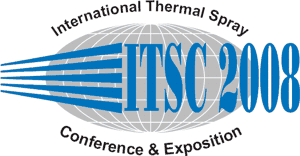
|
1520 |
|
Abrasion wear stability of VPS sprayed Ti-coatings
|
|
Heiko Gruner / MEDICOAT AG, CH Friederike Deuerler / University of Wuppertal, Safety Engineering/Material Science, Germany Philipp Gruner/ Medicoat AG, Switzerland |
|
The lifetime of cementless implanted artificial joints is mainly determined by the surface configuration of the implant. Rough Ti-coatings, vacuum plasma sprayed, are frequently used to improve the bone/implant surface by stimulating bone ingrowth into the surface structure. Bone cells directly anchor to Ti due to the presence of the self-protecting TiO2 passive layer. Besides good tensile bond strength and structural stability, also protection against wear are required for a successful long term behaviour of the Ti-coating. The wear resistance of Ti-coatings on implants must be evaluated and characterized by the Taber? abraser according to ASTM standard. This test method generates a combination of rolling and rubbing attack to the coating surface resulting in abrasion. The cumulative mass loss during the wear test quantifies the structural stability of thermal sprayed metallic coatings and particularly their resistance against particle shedding, which can occur during the implantation or as result of micro-motion and has to be minimised. For better quantifying the mass loss, additionally a disc-on-pin wear test is performed. This test enables the collection and the investigation of the wear particles by scanning electron microscopy (SEM) and sedimentation analysis to get information about their shape and grain size distribution. The Taber? abraser in combination with the disc-on-pin wear test is therefore helpful to optimise the wear stability of Ti-coatings as a function of the spraying conditions, thickness, roughness and micro-structure. Improved tribological performance and low mass loss are the results. In addition, both tests support the quality control of the ongoing Ti-coating production with defined process parameters. |